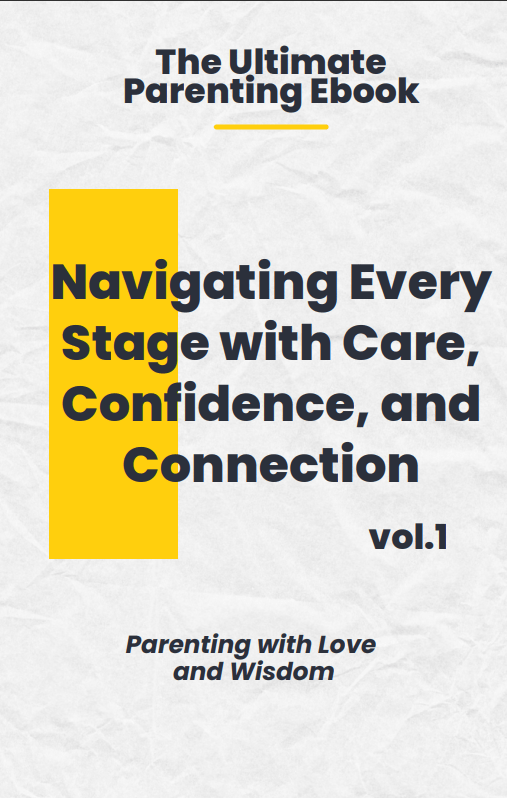
Parenting is hard. But there’s one parenting style that often leaves parents feeling conflicted and overwhelmed: indulgent parenting. It’s easy to fall into the trap of overindulging your kids, especially when you just want to avoid conflict or make them happy.
But here’s the thing: while indulgent parenting may feel comforting in the short term and path of least resistance, but in the long run, it can lead to entitlement, poor behavior, and difficulty handling life’s challenges.
By setting clear boundaries, fostering responsibility, and managing parental guilt, you can help your child become a confident, resilient adult. The key is balance. Don’t be afraid to make changes now that will support your child’s future growth. You’re not just raising a child – you’re raising an adult.
In this post, we’ll break down what indulgent parenting is, its impact on your child, and provide actionable solutions for balancing love, discipline, and responsibility in a way that supports your child’s growth.
In This Blog
ToggleWhat is Indulgent Parenting?
Let’s start with the basics. Indulgent parenting, often called permissive parenting, is characterized by a highly lenient approach to raising children. Parents who adopt this style tend to avoid setting strict boundaries or enforcing consequences.
Their goal is often to avoid conflict, keep the peace, and make their children feel happy and loved – sometimes to the point of overindulgence.
While indulgent parenting may seem like a good way to nurture your child’s happiness, it can often lead to problems down the line. This approach is in stark contrast to authoritative parenting, which balances warmth with structure, and authoritarian parenting, which is strict and less emotionally nurturing.
Common Misconceptions About Indulgent Parenting
Many parents think that indulgent parenting is just another way of being loving and caring. But it’s important to recognize the difference between love and overindulgence.
Offering endless praise, giving in to demands, and allowing children to make decisions without guidance can send the wrong message.
Children need boundaries to thrive, and without them, they can struggle with behavior and emotional control.
How Indulgent Parenting Affects Your Child’s Development
When it comes to your child’s growth, indulgent parenting can have significant effects. Although it might seem like you’re doing the right thing by always giving your child what they want, the consequences may surprise you.
Emotional and Behavioral Effects
One of the biggest impacts of indulgent parenting is the development of entitlement. Children may grow up expecting things to be handed to them without having to earn them. This can lead to poor coping skills, difficulty handling disappointment, and an overall lack of emotional maturity.
For example, kids raised with little discipline might throw tantrums when they don’t get their way because they haven’t learned to manage frustration. Overindulgence often leads to poor problem-solving skills because children aren’t given the opportunity to learn from their mistakes.
Social Consequences
A child who is used to getting whatever they want, when they want it, may struggle with peer relationships and authority. They might have trouble following rules at school or respecting teachers and other adults. Additionally, these children might have difficulty navigating friendships, as they may expect others to cater to their every need, which can lead to feelings of loneliness and isolation.
Long-Term Effects
In the long run, indulgent parenting can create difficulties for children as they transition into adulthood. They might find it harder to thrive in a workplace, maintain healthy relationships, or handle challenges without resorting to unhealthy coping mechanisms. The lack of self-discipline and responsibility often results in struggling with the demands of adult life.
Real-Time Challenges of Indulgent Parenting
Understanding the challenges of indulgent parenting style is crucial for any parent trying to create a positive home environment. Here are some typical challenges you might be facing:

Struggling with Setting Boundaries
One of the most significant issues with indulgent parenting is the challenge of setting and sticking to boundaries. If you’re constantly giving in to your child’s demands, you’ll likely find yourself in a cycle of inconsistency. Children need rules to feel secure, and without them, they may act out.
Consider scenarios like managing screen time or online gaming. A parent who is overly permissive might allow hours of gaming or excessive screen time, which can lead to behavioral problems and sleep disruptions. Establishing clear and consistent limits is essential.
Parental Guilt and Lack of Balance
Many parents fall into the trap of overindulging their children out of guilt. Perhaps you work long hours or face challenges in your relationship, and you want to make up for it by giving in to your child’s every whim. But this creates an unhealthy cycle where you constantly feel like you’re failing when you try to set limits. The key is learning to manage parental guilt and find a healthy balance between being affectionate and being disciplined.
Impact on Family Dynamics
Overindulgence doesn’t just affect the parent-child relationship. It can also disrupt the broader family dynamic. If one parent is overly permissive, it can create tension between co-parents, leading to conflicts about rules and responsibilities. Siblings might also feel frustrated or overlooked if one child gets special treatment.
Cultural Influences and Societal Pressures
With so much pressure from social media, friends, and family, it’s easy to feel like you’re not doing enough for your child. The rise of the helicopter parenting mindset has intensified this issue, making parents feel like they need to constantly cater to their children’s every need. But this approach can leave children unprepared for the challenges of life.
How to Transition from Indulgent Parenting to a Balanced Approach
Now that we’ve examined the challenges, let’s talk about how you can transition to a more balanced parenting style. These solutions are designed to help you raise a responsible, emotionally mature child without losing the warmth and affection you already provide.
Establishing Healthy Boundaries with Love
It’s possible to create healthy boundaries while still showing your child love and affection. Setting limits doesn’t mean being strict or cold. In fact, boundaries help children feel secure and loved. Try using positive reinforcement to encourage the behavior you want, and don’t be afraid to enforce consequences when needed.
For example, instead of yelling, calmly explain why a rule is in place (e.g., “It’s bedtime because you need rest to be strong and healthy tomorrow”). This helps your child understand why rules are important and promotes respect for authority.
Fostering Independence and Responsibility
Instead of overindulging your child’s every need, help them develop independence by giving them age-appropriate responsibilities. This could include simple chores like making their bed, setting the table, or packing their own lunch. By allowing them to take ownership of small tasks, you foster a sense of responsibility that will carry over into adulthood.
Teaching your child to make decisions and experience the natural consequences of those decisions (both positive and negative) is also essential for their growth.
Managing Parental Guilt
If you’ve been practicing indulgent parenting out of guilt, it’s time to reframe your thinking. Remember that love is not just about giving in – it’s about providing your child with the tools they need to grow and thrive. By setting healthy limits, you’re actually teaching them how to manage disappointment, which is an important life skill.
Creating Family Cohesion and Support
Aligning with your co-parent on parenting strategies is essential for creating a cohesive environment. When both parents are on the same page, it’s easier to maintain consistency in rules and expectations. If you’re facing challenges, consider seeking professional help or joining a support group for parents facing similar struggles.
Teaching Your Children About Limits
Introduce new limits gradually and explain them in a way your child can understand. For example, you could say, “We’re limiting screen time to one hour today because you need time to play outside.” Use praise and rewards to reinforce the positive behaviors you want to see.
Transitioning from indulgent parenting to a more balanced style takes time, but it’s worth the effort. Begin with introducing minor adjustments to your daily habits. Set one or two clear boundaries, and stick to them. Don’t be discouraged if your child resists at first – consistency is key.
When to Seek Professional Help
If you find yourself struggling with this transition, or if your child’s behavior is particularly challenging, it may be time to seek professional help. A parenting coach or therapist can help you develop strategies to manage parental guilt and implement healthy boundaries in a way that feels right for your family.
Conclusion
It’s not too late to make changes that will benefit both you and your child. Reflect on your current parenting style and take action toward creating a more balanced approach. With a little effort, you can raise a child who is happy, responsible, and emotionally mature – without falling into the trap of indulgent parenting. You’ve got this!
You may also be interested in : Permissive Parenting Explained: How Lack of Structure Affects Kids and What You Can Do
FAQs
1. What is indulgent parenting?
Indulgent parenting, also known as permissive parenting, is a lenient style where parents avoid strict rules, enforce few limits, and prioritize their child’s immediate happiness over discipline.
2. How does indulgent parenting affect children?
It can lead to entitlement, lack of self-discipline, emotional immaturity, and struggles with authority. Long-term effects may include difficulties in relationships and work.
3. Is indulgent parenting the same as permissive parenting?
Yes, indulgent parenting is another term for permissive parenting, where parents are nurturing and lenient but lack consistent boundaries.
4. What are the pros of indulgent parenting?
While it fosters a close parent-child relationship and encourages open communication, it may fail to teach essential life skills like responsibility.
5. What are the cons of indulgent parenting?
The lack of structure often results in behavioral issues, poor coping skills, and difficulty handling authority as children grow older.
6. How can I tell if I’m practicing indulgent parenting?
If you frequently avoid enforcing rules, give in to tantrums, or struggle to say “no” to your child, you might be practicing indulgent parenting.
7. Why do parents choose indulgent parenting?
Some parents fear conflict, feel guilty about time apart, or believe leniency shows love. Cultural and societal pressures can also play a role.
8. How does indulgent parenting affect emotional development?
Children may struggle to manage emotions, face disappointment, or handle stress effectively, impacting emotional maturity and resilience.
9. Can indulgent parenting lead to entitlement?
Yes, children raised without limits often feel entitled, expecting others to cater to their needs without effort on their part.
10. What’s the difference between indulgent and authoritative parenting?
Indulgent parenting prioritizes leniency, while authoritative parenting balances warmth with clear boundaries and consistent discipline.
11. How does indulgent parenting affect family dynamics?
It can cause tension among siblings, conflicts between co-parents, and disrupt family harmony due to inconsistent rules and expectations.
12. How does indulgent parenting impact academic performance?
Children may struggle with focus, responsibility, and time management, leading to lower academic performance over time.
13. Can indulgent parenting harm social skills?
Yes, children may face challenges in peer relationships due to entitlement or difficulty respecting others’ boundaries.
14. What are examples of indulgent parenting behaviors?
Giving in to every demand, avoiding consequences for bad behavior, and allowing unlimited screen time are common examples.
15. Is indulgent parenting reversible?
Yes, with conscious effort, parents can transition to a balanced approach by gradually setting boundaries and fostering accountability.
16. What are healthy alternatives to indulgent parenting?
Adopting an authoritative style, where you combine warmth with clear rules and consequences, is a healthier and more effective option.
17. How can I manage parental guilt related to indulgent parenting?
Focus on your child’s long-term growth and remind yourself that setting limits is an act of love that fosters their independence.
18. What are the signs of a child struggling due to indulgent parenting?
Signs include poor problem-solving skills, difficulty managing emotions, lack of respect for authority, and reliance on parents for decision-making.
19. Does indulgent parenting affect mental health?
Yes, children raised without boundaries may experience anxiety or stress when faced with challenges they’re unprepared to handle.
20. When should I seek professional help?
If your child exhibits severe behavior issues or if the transition from indulgent parenting feels overwhelming, consult a therapist or parenting coach.




